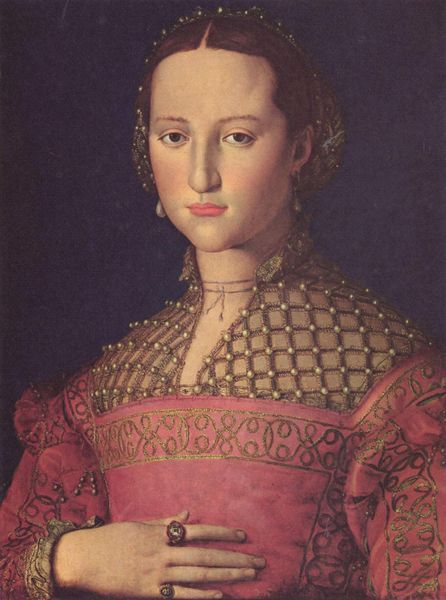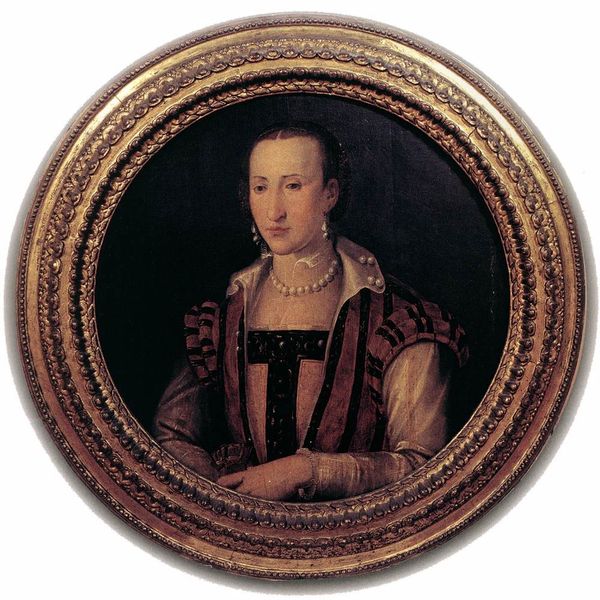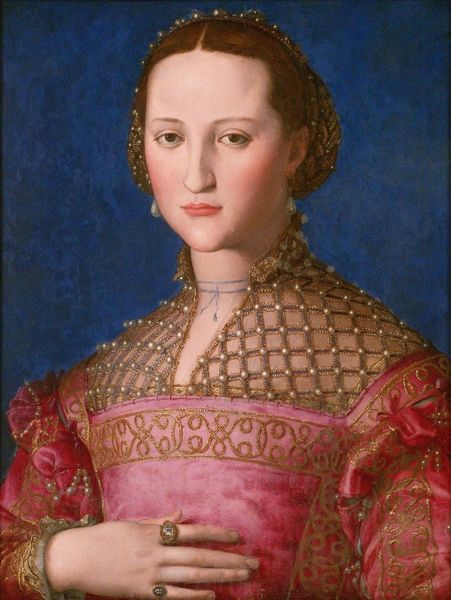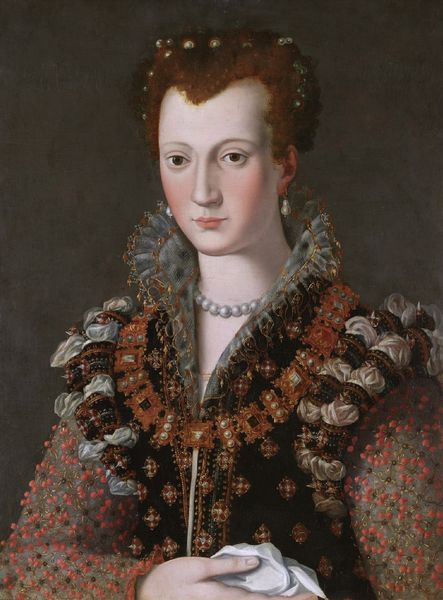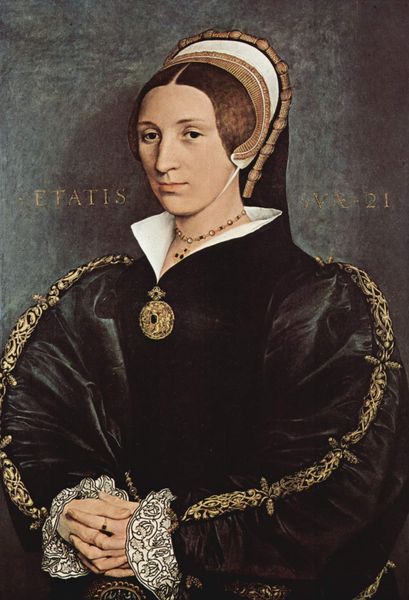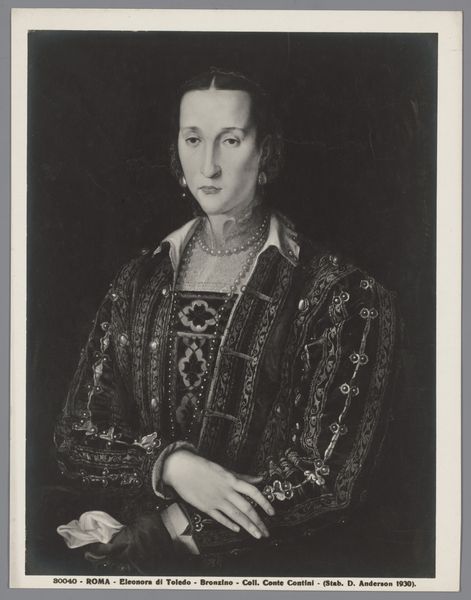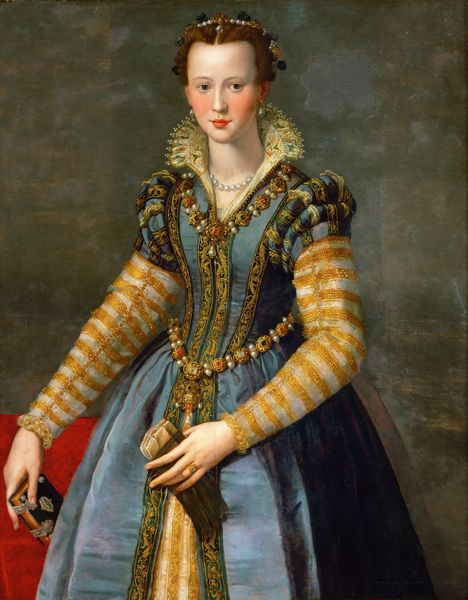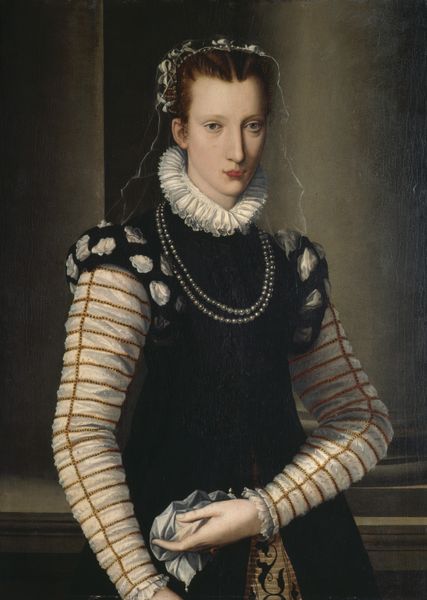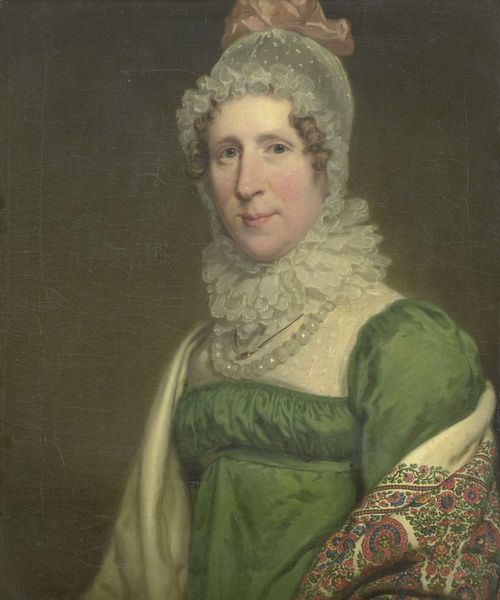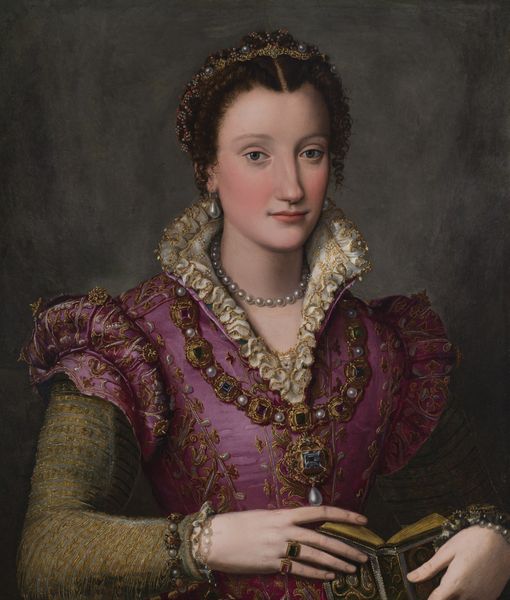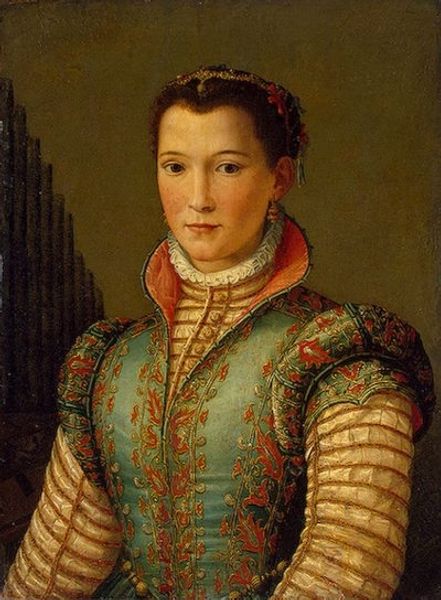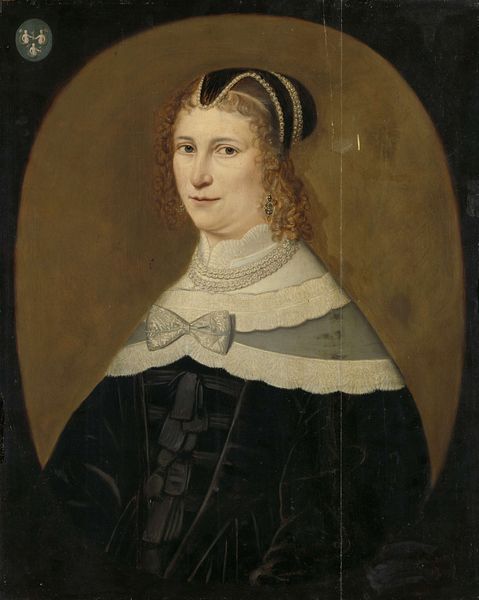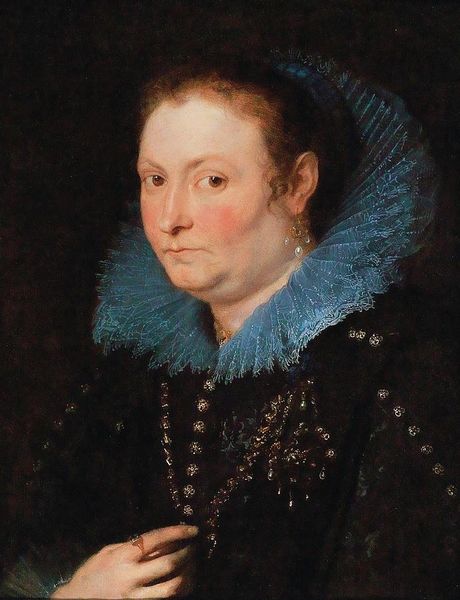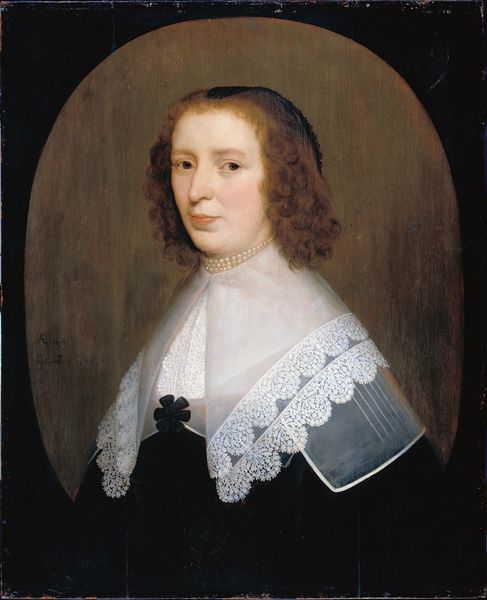
painting, oil-paint
#
portrait
#
painting
#
oil-paint
#
mannerism
#
history-painting
#
academic-art
#
italian-renaissance
Copyright: Public Domain: Artvee
Agnolo Bronzino painted this portrait of Eleonora di Toledo, wife of Cosimo de' Medici, probably in Florence sometime in the 1540s. Its exquisite detail reflects the Renaissance interest in classical art, but also the specific circumstances of Medici rule in Florence. Consider how the image creates meaning through its visual codes. The richness of Eleonora’s clothing and jewelry proclaims her status as the Duchess of Florence, and displays the wealth of the Medici court. Her garments were chosen to project an image of dynastic power. The cool detachment in the painting is a reminder of the sitter's elevated rank. This kind of portrait was an important tool for the consolidation of power in sixteenth-century Europe. Bronzino himself was closely associated with the institutions of court. As historians, we can explore the inventories of the Medici family, their financial accounts, and other documents that might help us to understand the social role of portraits, and their ideological function.
Comments
No comments
Be the first to comment and join the conversation on the ultimate creative platform.
